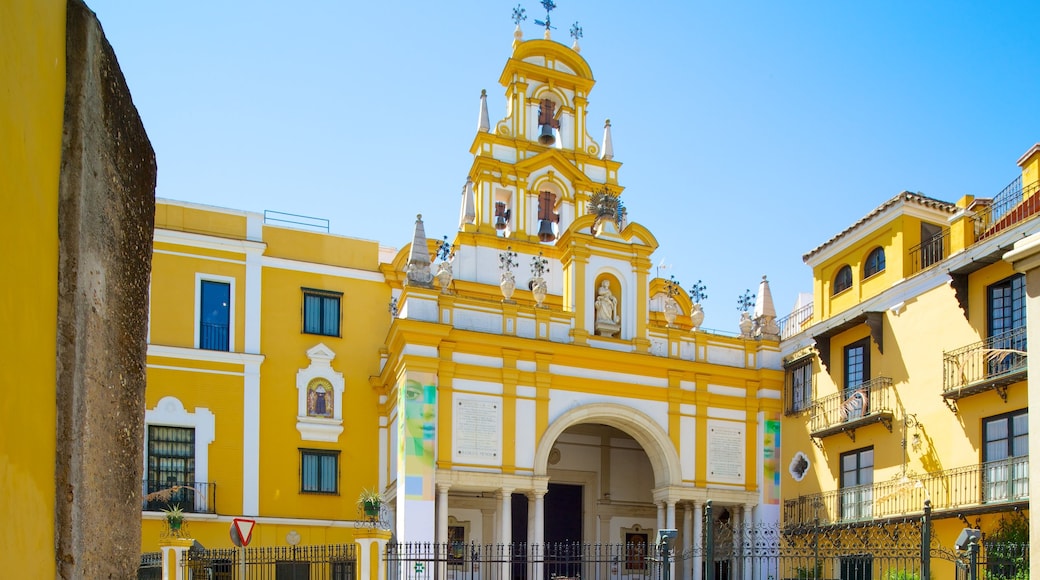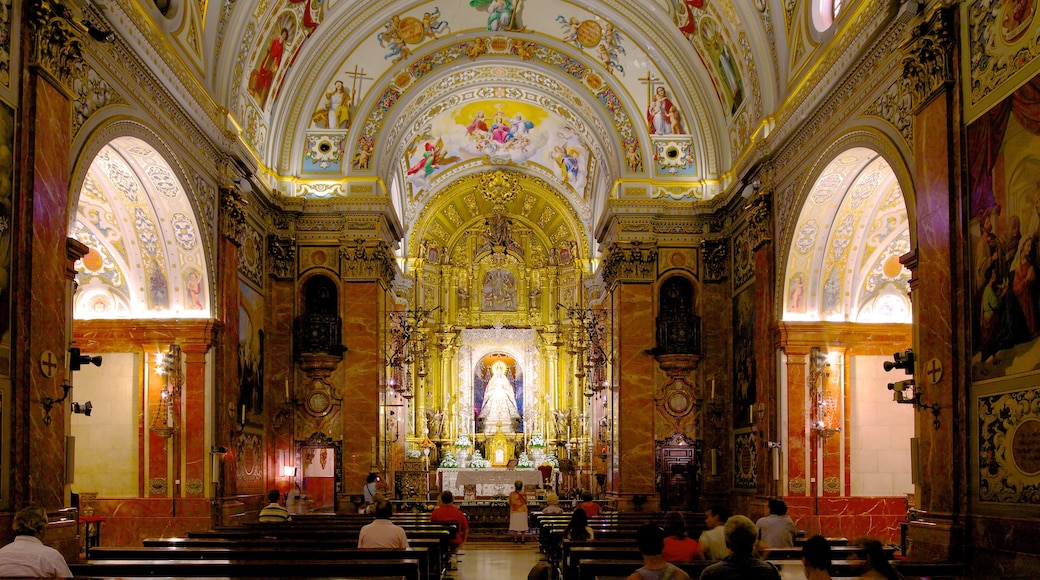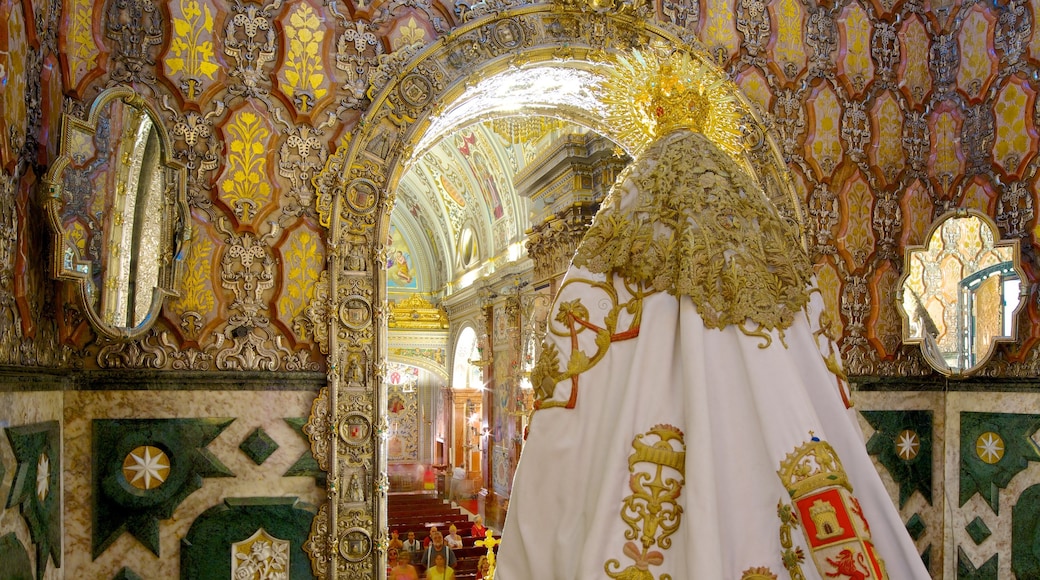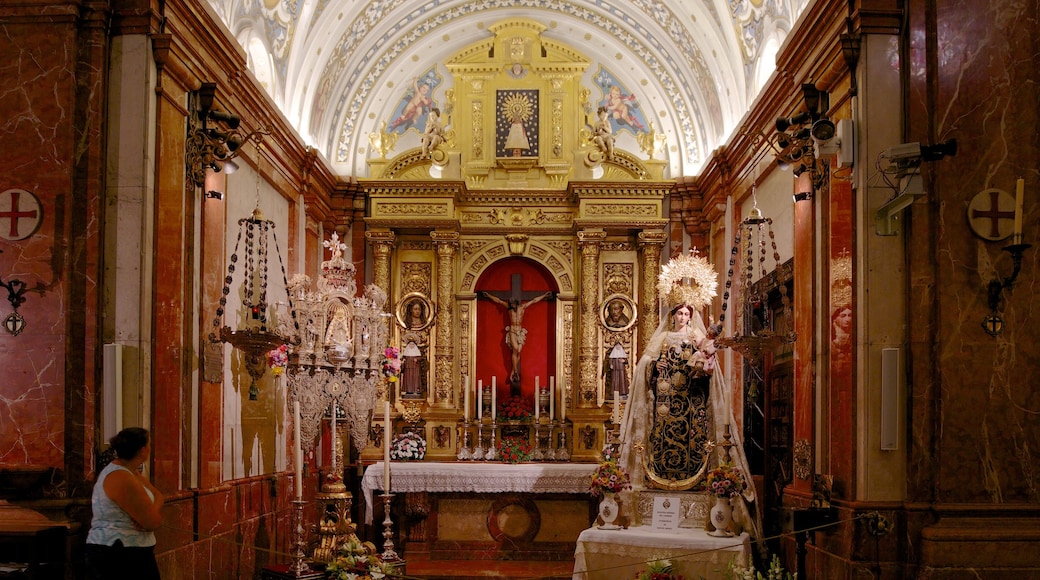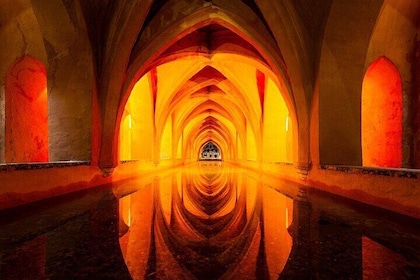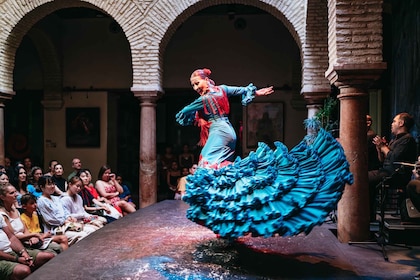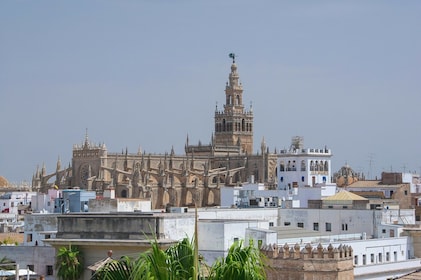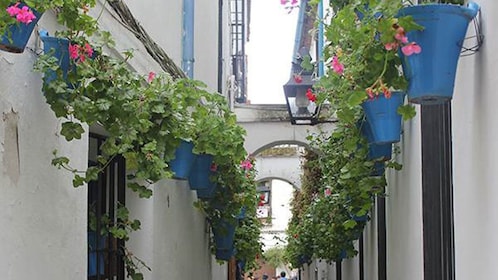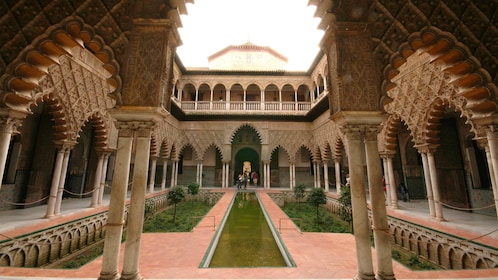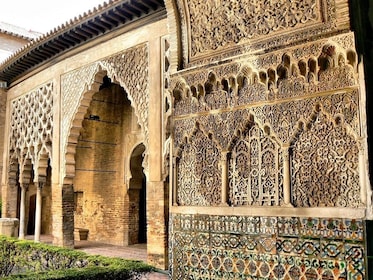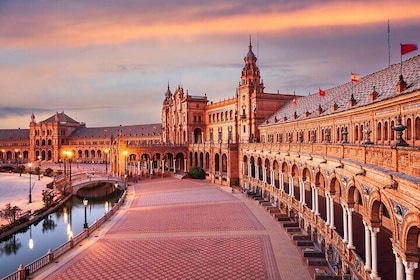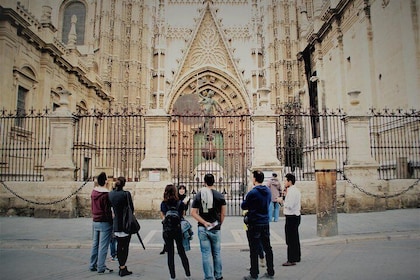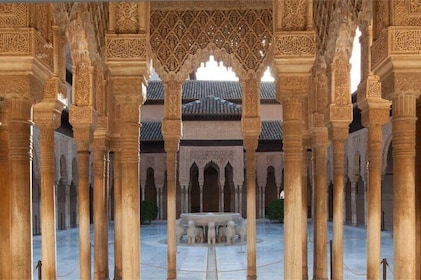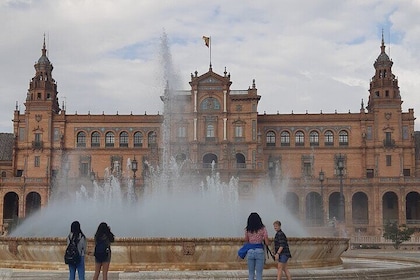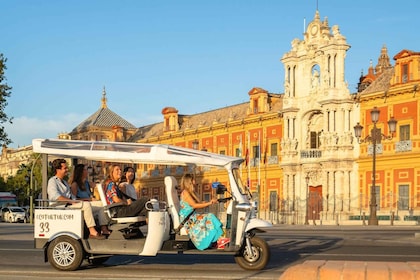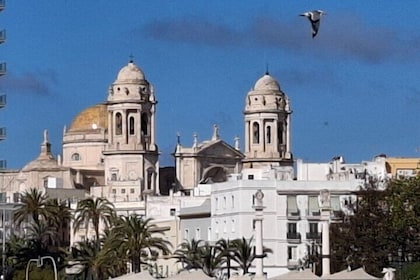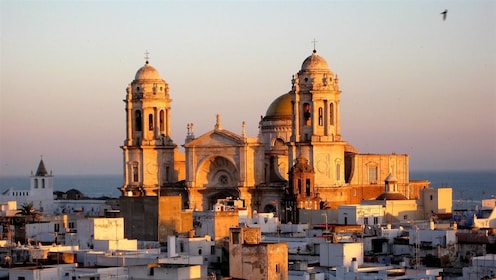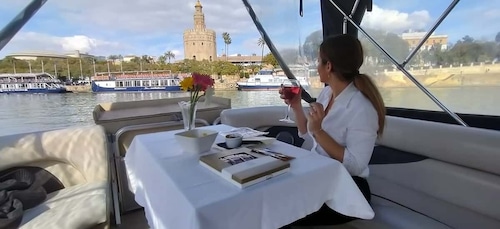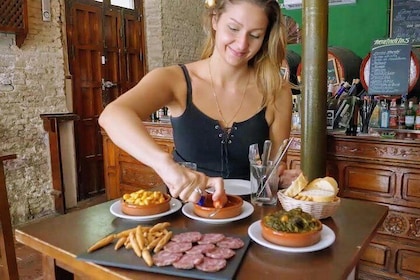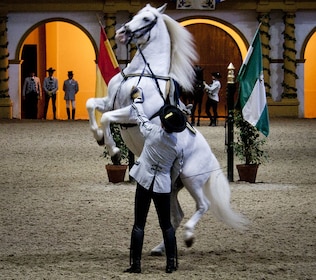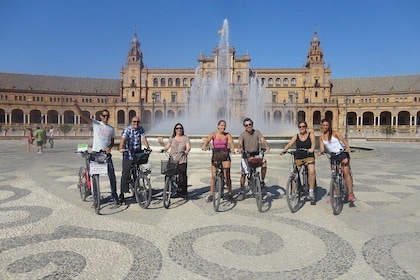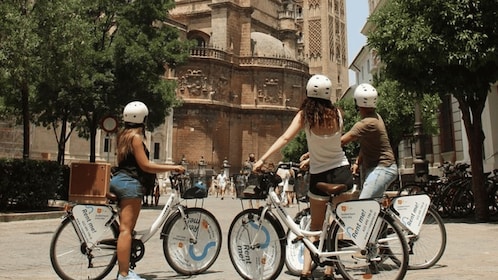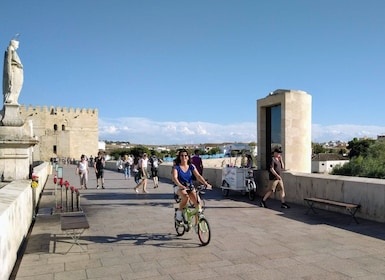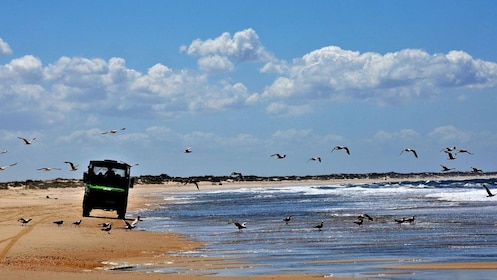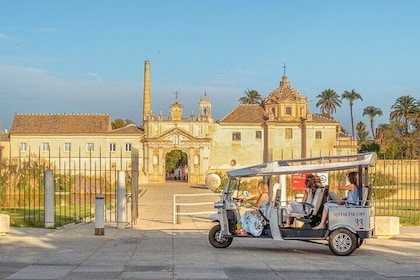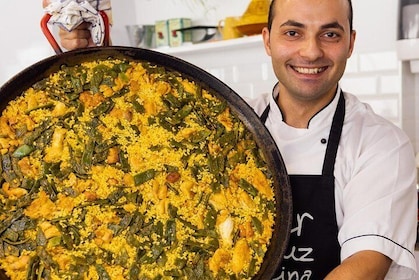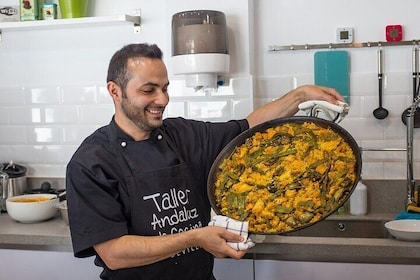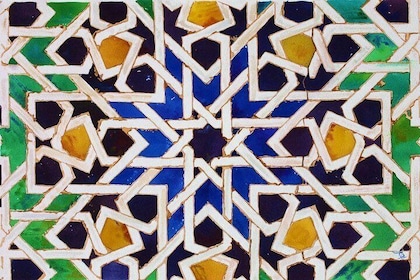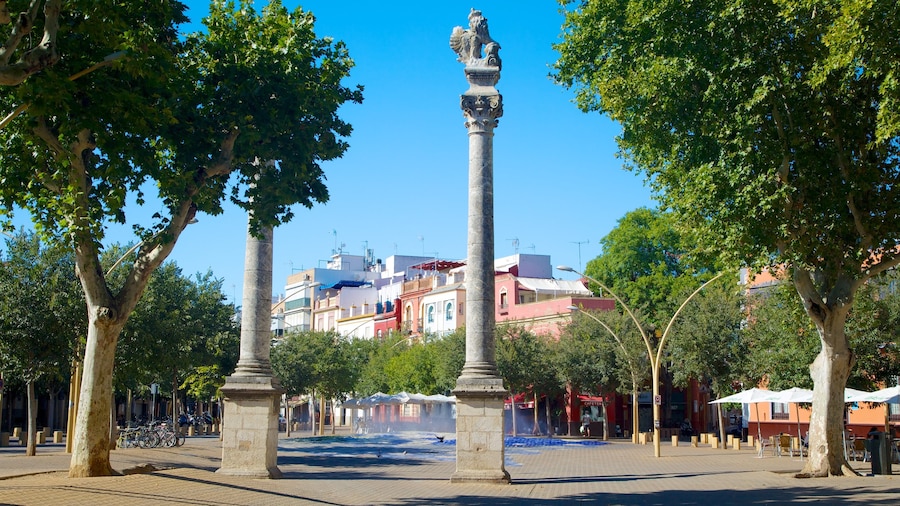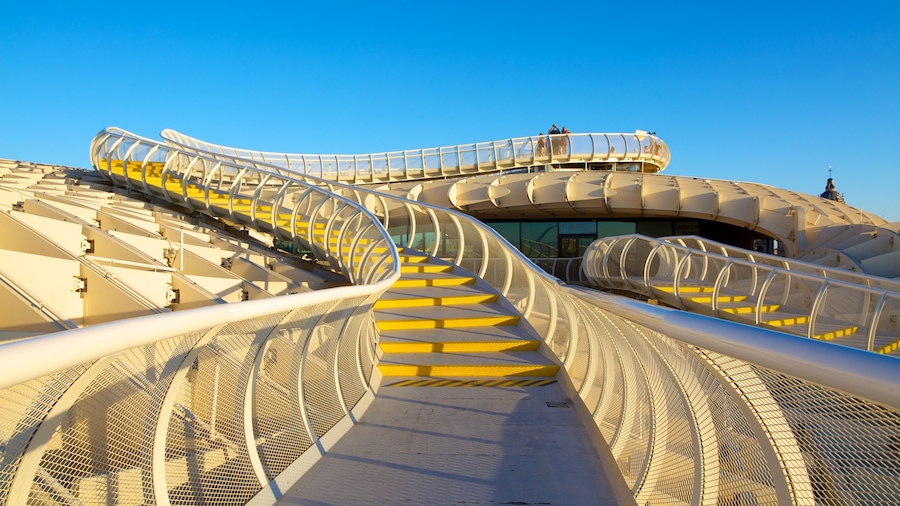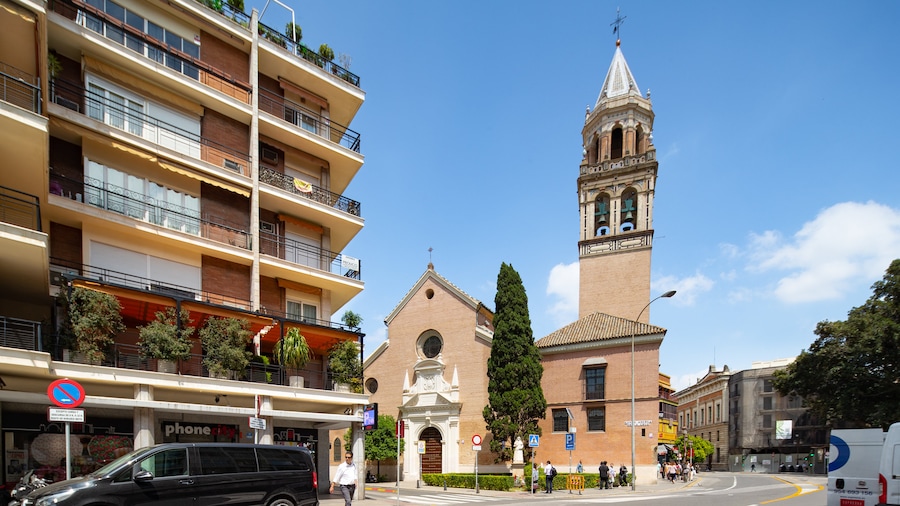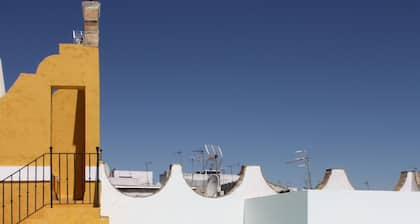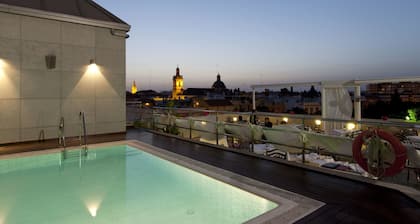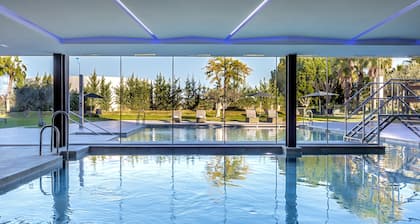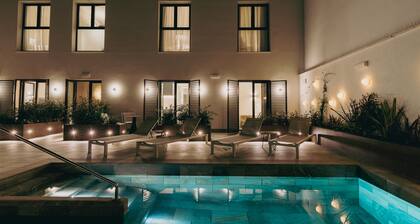The Basilica of the Macarena houses one of the most revered religious icons in Seville, the Virgin of Hope of Macarena statue. The wooden image of the Virgin Mary dates back to the 17th century and is paraded through the city streets every Easter.
The neo-Baroque basilica was built in 1949 to house the statue after the church in which it was formerly kept was damaged by fire. Go up to the main altar to study the statue in detail. Look closely at her face to see small glass droplets that resemble tears. The icon is also known as the Weeping Virgin.
Identify the "bruise" on the statue’s right cheek, caused by a wine bottle thrown by a drunken man during an Easter procession. See the emerald brooches donated by Joselito El Gallo, a famous 20th-century bullfighter. Observe the rosary in her left hand and the handkerchief in her right hand.
Walk around the rest of the church and its richly decorated chapels. See the large altarpiece that houses the 17th-century statue Our Father Jesus of Judgement. Stop by the Hispanic altar and survey its pictures, including the Virgin of Guadalupe, painted in 1703 by Joseph Mota. Look at the collection of frescoes, created by Rafael Hernández Rodríguez between 1981 and 1993.
Tour the church’s small museum to view vestments that sometimes adorn the Virgin of Hope of Macarena. There are also jewels and silverware that decorate her procession float as well as jeweled ceremonial vessels.
The Basilica of the Macarena is open every day and admission is free, although there is a small charge to visit the museum. Situated in the Macarena district of Seville, the church is a 20-minute walk or short bus ride north of the city centre. There is metered underground parking in nearby Calle Dr. Fedriani. When you leave the church, cross the street to look at the remains of the 12th-century wall that used to encircle the city.
